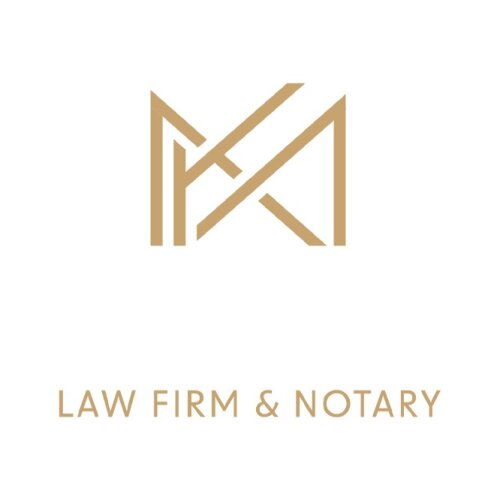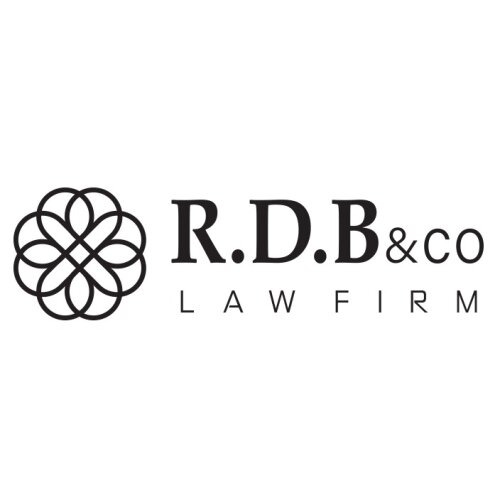Best Land Use & Zoning Lawyers in Petaẖ Tiqwa
Share your needs with us, get contacted by law firms.
Free. Takes 2 min.
Free Guide to Hiring a Real Estate Lawyer
List of the best lawyers in Petaẖ Tiqwa, Israel
About Land Use & Zoning Law in Petaẖ Tiqwa, Israel
Land use and zoning laws in Petaẖ Tiqwa, Israel, dictate how properties within the city can be used and developed. These laws are designed to ensure that land is used efficiently and that development is in harmony with city planning objectives. Zoning regulations typically encompass residential, commercial, industrial, and agricultural uses, dictating specific requirements such as building heights, density, setbacks, and land use types. The aim is to maintain a well-organized urban environment while considering the needs of the population, environmental sustainability, and economic vitality.
Why You May Need a Lawyer
Legal assistance may be necessary in various situations involving land use and zoning, including:
- Obtaining permits for construction or remodeling projects.
- Understanding property rights and restrictions.
- Resolving boundary disputes with neighbors.
- Challenging or appealing zoning decisions made by local authorities.
- Seeking variances or exceptions to zoning laws for specific projects.
- Negotiating with municipal bodies regarding development plans.
- Ensuring compliance with environmental regulations and other legal requirements.
Local Laws Overview
Key aspects of land use and zoning laws in Petaẖ Tiqwa include:
- Zoning Plans: The city is divided into zones based on designated land uses, such as residential, commercial, or industrial. Each zone has specific regulations governing what can be built and how properties can be used.
- Building Permits: All construction and significant modifications require a building permit from the local planning and building committee. The application process involves submitting detailed plans and ensuring compliance with zoning regulations.
- Setback Rules: There are regulations regarding the distance buildings must be set back from property lines, streets, and other structures to ensure safety and aesthetics.
- Permitted Uses: Each zone has a list of permitted and prohibited uses. For example, certain residential zones may prohibit commercial activities.
- Environmental Regulations: Development projects may need to comply with environmental protection regulations to ensure minimal impact on the local ecology and sustainability standards.
- Public Participation: Zoning changes often involve public hearings where community members can express their opinions and concerns.
Frequently Asked Questions
1. What is the first step in obtaining a building permit in Petaẖ Tiqwa?
The first step is to consult with the local planning and building committee to understand the zoning regulations and requirements specific to your property. Then, submit detailed building plans for review and approval.
2. Can I convert a residential property into a commercial one?
Converting a residential property to a commercial use often requires a zoning change or a special permit. You will need to apply through the local planning authority and may have to attend public hearings.
3. What is a zoning variance?
A zoning variance is an exception to the zoning ordinance granted by the local authority. This might be necessary if a property owner wishes to use their land in a way not typically permitted by existing zoning laws.
4. How can I find out the zoning designation for my property?
You can check the zoning designation by visiting the local planning and building committee office or their official website. They provide zoning maps and detailed information about permitted uses and regulations.
5. What should I do if I have a dispute with my neighbor over property boundaries?
You should consult a lawyer who specializes in land use and zoning laws. They can help mediate the dispute, review property deeds and surveys, and pursue legal action if necessary.
6. Are there any restrictions on the height of buildings in Petaẖ Tiqwa?
Yes, each zone has specific regulations regarding the maximum height of buildings. These restrictions are outlined in the zoning plan to ensure aesthetic consistency and safety.
7. Can I appeal a zoning decision?
Yes, property owners can appeal zoning decisions. This typically involves submitting an appeal to a higher authority or a zoning board of adjustment and may require legal representation.
8. What are the common environmental regulations affecting construction?
Environmental regulations may include requirements for managing stormwater runoff, protecting green spaces, minimizing pollution, and ensuring energy-efficient building practices.
9. How long does the building permit approval process take?
The duration can vary depending on the complexity of the project and compliance with zoning regulations. It can take anywhere from a few weeks to several months.
10. What happens if I build without a permit?
Building without the necessary permits can result in significant fines, legal action, and possibly having to demolish the unauthorized construction. Always ensure you have the proper permits before starting any project.
Additional Resources
For further assistance, you can contact the following resources:
- Local Planning and Building Committee: Provides information and forms for zoning and building permits.
- Ministry of Environmental Protection: Offers guidelines on environmental regulations and sustainability practices.
- Israel Land Authority: Manages state-owned lands and provides relevant documentation and policies.
Next Steps
If you need legal assistance in land use and zoning, consider the following steps:
- Consult a Lawyer: Look for a lawyer specialized in land use and zoning laws. They can offer legal advice specific to your situation and help navigate complex regulations.
- Gather Documentation: Collect all relevant documents such as property deeds, zoning maps, and any correspondence with local authorities.
- Prepare Questions: Make a list of questions or concerns you have about your property or project to discuss with your lawyer.
- Schedule a Consultation: Set up a meeting with your chosen lawyer to discuss your case and develop a plan of action.
By taking these steps, you can ensure you are well-prepared to address any land use and zoning issues and successfully navigate the legal landscape in Petaẖ Tiqwa, Israel.
Lawzana helps you find the best lawyers and law firms in Petaẖ Tiqwa through a curated and pre-screened list of qualified legal professionals. Our platform offers rankings and detailed profiles of attorneys and law firms, allowing you to compare based on practice areas, including Land Use & Zoning, experience, and client feedback.
Each profile includes a description of the firm's areas of practice, client reviews, team members and partners, year of establishment, spoken languages, office locations, contact information, social media presence, and any published articles or resources. Most firms on our platform speak English and are experienced in both local and international legal matters.
Get a quote from top-rated law firms in Petaẖ Tiqwa, Israel — quickly, securely, and without unnecessary hassle.
Disclaimer:
The information provided on this page is for general informational purposes only and does not constitute legal advice. While we strive to ensure the accuracy and relevance of the content, legal information may change over time, and interpretations of the law can vary. You should always consult with a qualified legal professional for advice specific to your situation.
We disclaim all liability for actions taken or not taken based on the content of this page. If you believe any information is incorrect or outdated, please contact us, and we will review and update it where appropriate.












